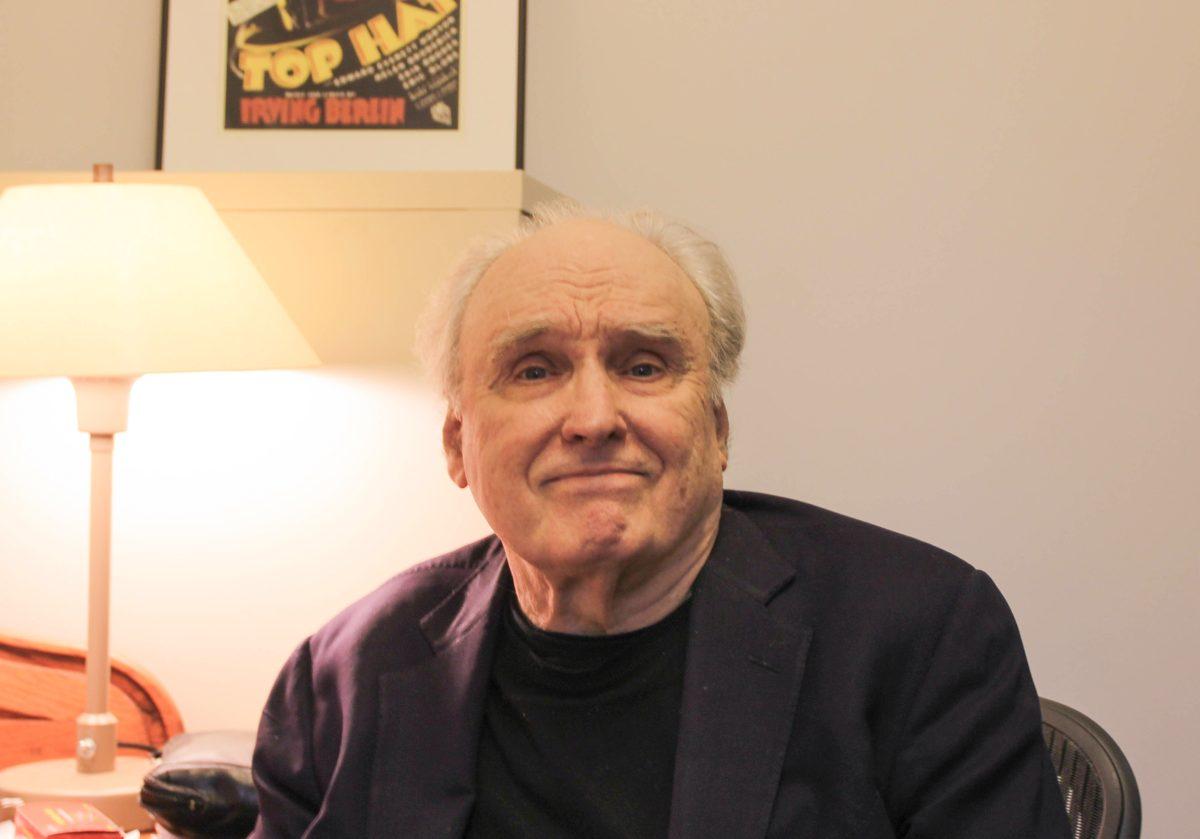On Nov. 15 in New York City, Frank Bidart, the Andrew W. Mellon Professor in the Humanities and a professor of English at Wellesley, won the National Book Award for Poetry for his collection “Half-Light: Collected Poems 1965–2016.” Bidart, a prolific poet, was also the recipient of The Griffin Trust For Excellence In Poetry’s Lifetime Recognition Award in June.
Faculty and students have received the announcement of Bidart’s win with delight. Yu Jin Ko, professor of English and chair of the department, explained that Bidart manages the extraordinary feat of being a great professor and editor in addition to being a working poet. Additionally, Ko feels that Bidart exemplifies the approach that the department tries to take when studying poetry critically and creatively: total engagement with the subject matter.
“He has a PhD in English literature, he has also edited a volume of Robert Lowell’s works, but he is himself a practicing poet who also teaches in the creative writing part of our curriculum. So he straddles both the critical side with courses on literature and the creative side with courses in creative writing, and it’s hard to think of people in this country who are as accomplished as Frank Bidart … when it comes to people who can engage with the literature as creative writers and creative thinkers,” Ko commented.
Professor of English Dan Chiasson, also a poet and critic, explained that Bidart’s work has influenced his own poetry career because it has helped to guide him towards certain ideas and values that he wants his work to embody.
“I was moved by the ideas of greatness, and of fidelity to one’s private vision, and of tenacity and truth-telling, that I found in Frank’s work. I wanted to make a body of writing that reflected those values too,” he explained.
Chiasson believes that the depth and range of Bidart’s work is truly remarkable and finds that it stands as a peer to the work of poets in generations past.
“Frank’s poetry was the first body of work by a living poet that I regarded as great, every bit as great as the American poets of the generation that preceded him. Robert Lowell and Elizabeth Bishop, his friends and mentors both, were my yardsticks at the time. In some ways, his work was even more thrilling to me than their work: it had the ambition and scope and complex sincerity of the Modernists, poets like T.S. Eliot and Ezra Pound, who saw the whole cultural and historical picture,” he said.
Furthermore, Chiasson believes that Bidart’s poems are unique because of their capacity to make people feel. He echoed Bidart’s own speech at the National Book Awards by explaining that Bidart’s poems are “acts of survival.”
During his awards speech, Bidart stated that his poetry is influenced by his life. “I realized during the past month that I’m almost twice as old as any of the other finalists. Writing the poems was how I survived,” Bidart said. He added, “One premise of art is that anything personal, seen deeply enough, becomes general, becomes impersonal. I hope that the journeys these poems go on will help others to survive, as well.”
Bidart’s declaration that poetry has helped him to survive is not surprising considering the depth of feeling that he expresses in his poems. “Few poets you will encounter give you the impression that poetry is a means of staying alive. The stakes are total and sometimes frightening. His work is raw, sometimes disturbing; but also, charming and full of wit and sweetness and agility,” Chiasson explained.
Bridget McAuliffe ’20, a student in Bidart’s Contemporary American Poetry class, emphasized that Bidart, in addition to being a distinguished poet, is also an exceptional professor. She explained that he has influenced the way that she reads and analyzes poetry and that one of his greatest strengths as a professor is his ability to convey the beauty of spoken poetry.
“I feel so lucky to be a student in his class. He truly is a master poet, and I am learning from the best. One of my favorite parts of being in his class is hearing him read the poems from various authors. He has a way of making the imagery and content come alive … my hope is that he reads some of his poems from his newly published book,” she said.
Ko hopes that the National Book Award will help Bidart further establish his eminence among the peerage of great poets.
“The prestige he brings to the department as one of the most eminent poets in America writing today is priceless … I hope that this award, that National Book Award, will give an indication of his status,” he said.






